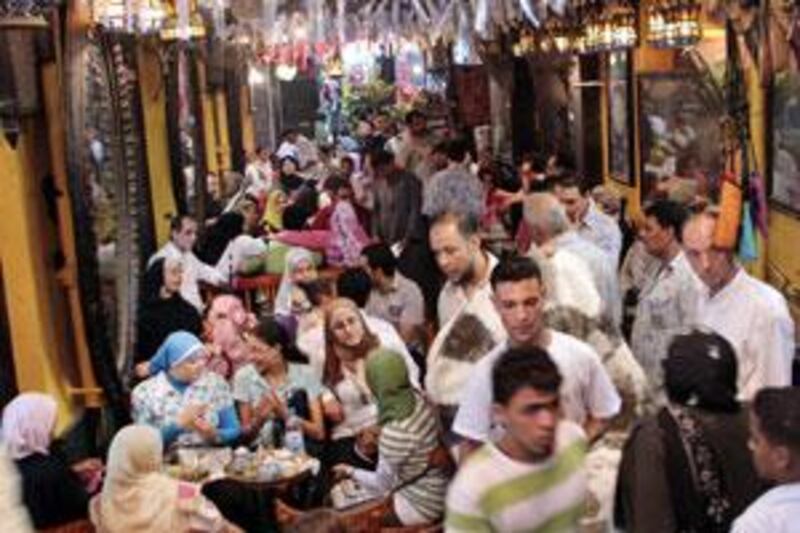CAIRO // Police were reported to have arrested more than 150 people on charges they were not fasting during the day - even though eating, drinking or smoking publicly during Ramadan is not a punishable offence under Egyptian law. Egypt's interior ministry has not confirmed the reports published in several local newspapers in the past few days, but the reported arrests have been roundly condemned by both Christians and Muslims.
At least 155 people were arrested in Aswan, in upper Egypt. On Tuesday, Mamdouh Ramzi, a Coptic lawyer, submitted an appeal to the interior ministry demanding an investigation into reports that police officers in Aswan, Hurghada - a tourist resort on the Red Sea - and Dakahliya province have been chasing and arresting people suspected of not abiding by Ramadan fasting. He urged the ministry "to send those police officers to a fair trial before Egypt becomes another Taliban".
An estimated 10 per cent of Egypt's 80 million population is Christian, the majority of them Orthodox Copts. Many Muslims have also raised concern over the report. "These people don't know that there are non-Muslims in Egypt? They have the right to eat and drink wherever they want without being afraid of being arrested and questioned," said Islam Hamed, 35, an accountant with an oil company. "Why force people to fast? Fasting is a special relationship between the individual and his God," said Malika Hassan, 20, a psychology student.
Rights groups accused the authorities of pandering to Islamists. "This is competing with other Islamic groups in society and reveals that extremism has reached some policemen," said Gamal Eid, a lawyer and director of the Arab Network for Human Rights. "Citizens have the right to observe Ramadan or not, even taking into accounts the feelings of others. "It's up to each individual. There is no penal code for these things, and no one has the right to enforce it on others or punish them for not doing so."
Novelist Sahar el Mougy, in a column in the independent Masry al Youm newspaper, said the authorities had no mandate over moral issues. "There is no legal basis for this bizarre behaviour, and no logic can justify these practices that are scaring Egyptians," she wrote. "Those arrests pose questions: have the Egyptian police finished arresting criminals and now are dedicated to the inquisition of good morals, similar to the inquisition in Europe in the Dark Ages?"
Another columnist said the arrests smacked of religious policing. "There is no specialised police force in Egypt to implement hodoud [Islamic legal punishments] like other countries," Mohammed Hamdi wrote in the state-owned daily Rose el-Youssef on Monday. "The big problem is that those policemen are violating the law by such arrests instead of enforcing it, which could eventually lead to the collapse of the rule of law."
Clerics at Al Azhar, Sunni Islam's highest seat of learning, and with the religious affairs ministry, supported the campaign of detaining and punishing those who eat, drink and smoke in public during fasting hours and demanded the government issue a law to this effect. They condemned criticism by secular writers and human rights groups. "People are free not to fast, but privately; doing so in public is not a matter of personal freedom, but it reveals contempt for those who are fasting, for Ramadan and for the fasting as an obligatory religious duty," said Sheikh Abdel Moati Bayoumi, a member of the Islamic Research Centre, the highest legal branch of Al Azhar.
"We believe in the freedom of worship and rituals and that no one should be forced to practise them. However, going public by not fasting is a sin, therefore, they should be punished," said Sheikh Salem Abdel Gelil, the deputy of the ministry. "There should be a law to criminalise breaking the fast publicly in Ramadan in Egypt." nmagd@thenational.ae





